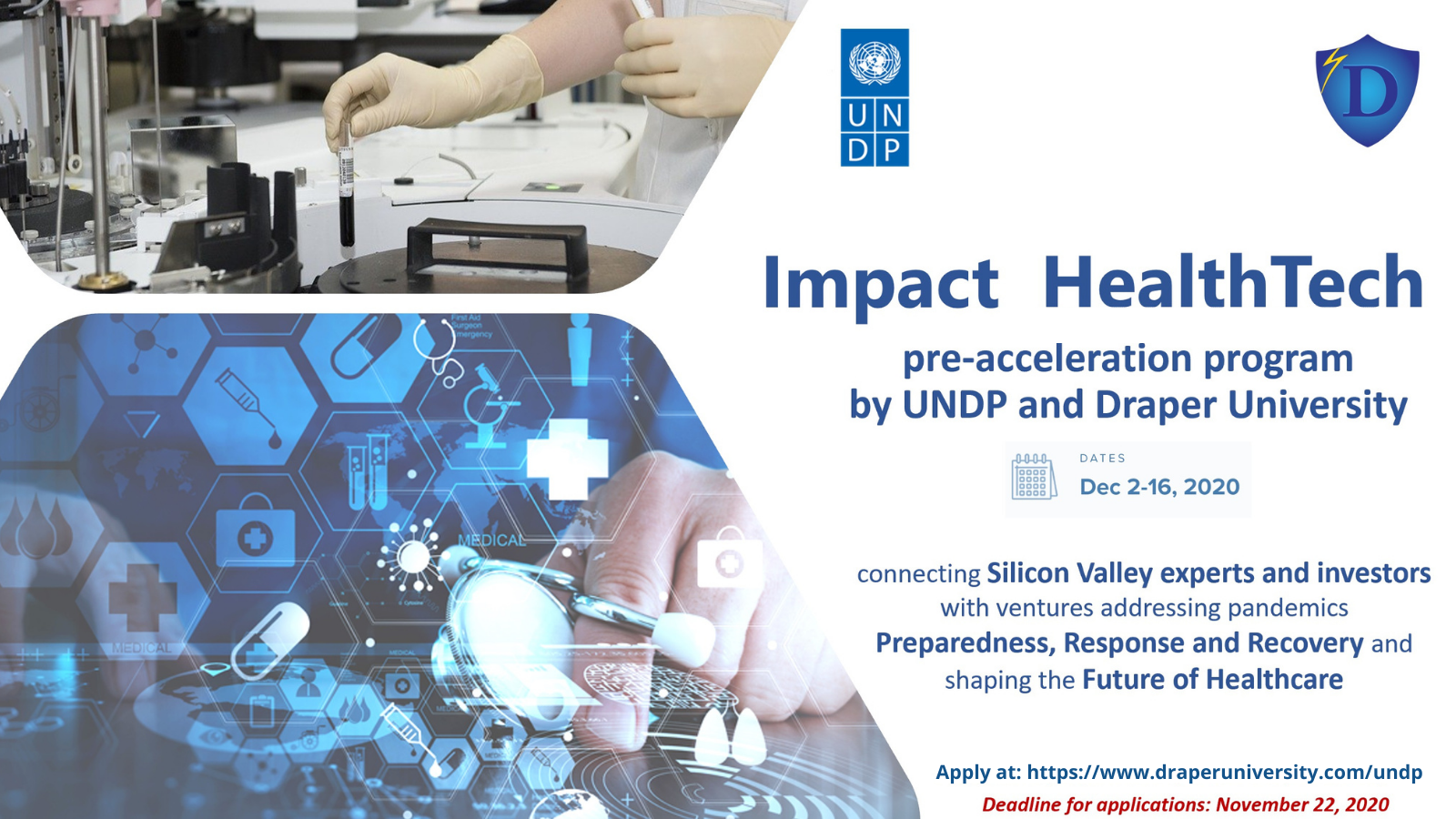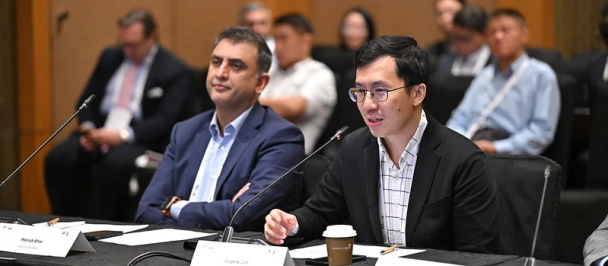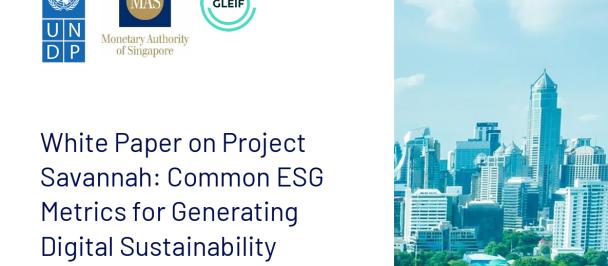NEW YORK CITY, SAN FRANCISCO, SINGAPORE – The United Nations Development Programme has partnered with the Silicon Valley venture capital firm Draper University, a pre-acceleration and entrepreneurship training support structure within Draper Venture Network, to accelerate and scale-up ventures with innovative technology solutions that address a range of COVID-19-related challenges.
The COVID-19 pandemic has highlighted existing weaknesses in many health systems and exacerbated inequalities and access to resources globally. In an effort to respond to long-term recovery efforts, the UNDP’s Global Centre for Technology, Innovation and Sustainable Development in Singapore and Draper University are establishing an Impact Venture Acceleration and Scaling Initiative.
This initiative will kick off in the coming weeks with a pre-accelerator programme that focuses specifically on health-tech priorities. With UNDP’s 50+ yearlong focus on driving sustainable development in the lower- and middle-income countries around the globe, and Draper University’s strong track record accelerating successful ventures with a robust network of partners and investors, this new initiative shows much promise.
The Accelerator is being set up to support growth stage and established businesses with viable, effective and impactful solutions and with a real passion for creating lasting impact, particularly in accelerating COVID-19 recovery efforts. It will look for ventures with both innovative technology solutions and transformative business models, services and products that address challenges related to healthcare, critical market needs, sustainable development and overall economic recovery.
Bradley Busetto, Director of the UNDP Global Centre for Technology, Innovation and Sustainable Development, said: “There are many incredible ideas out there that can help us respond to the pandemic, as COVID-19 devastates communities and shatters healthcare systems around the world. Impact investment, via our impact venture accelerators, is one way of engaging the private sector, whether they are startups, SMEs, or MNCs, to address the SDGs together. Here, the role of the UNDP is to help entrepreneurs to scale up their solutions and bring them to communities that need them the most. We also bring value by helping them to measure and articulate the impact of their innovations, and guide them in becoming more impact-focused – putting sustainability and impact at the centre of their decision-making.”
The first cohort, which will go through a pre-acceleration bootcamp starting in November, is exclusively focused on health-tech. This cohort focuses on priority actions which are needed to control and recover from the COVID-19 pandemic. This includes the collection, analysis and sharing of epidemiological surveillance data; rapid production and effective distribution of essential medical equipment; clear communication of accurate scientific and public health messages; isolation and contact tracing for positive cases; and scaling up health workforce capacity.
The bootcamp will be followed by acceleration and VC funding input to promote the scale-up of the impact ventures across the borders. The overall programme will assume a dedicated effort on SDG Impact Alignment and Impact Measurement and Management to assess impact scalability of the ventures in the COVID-19 crisis realities.
Tim Draper, Founder of Draper Venture Network and Draper University, is a third generation venture capitalist behind over 34 renowned unicorn ventures, such as Baidu, Skype, Tesla, Twitter, and Hotmail, and one of the lead globalisers of venture capital. Regarding this initiative, Draper highlighted: “We are very excited to partner with UNDP, where my father was Administrator for seven years, to support health-related entrepreneurs around the world. Draper University will be bringing together talented advisors and experts from the Silicon Valley to help mentor, guide and scale these businesses. The world needs more heroes right now, and technologies like computational biochemistry, data-driven decision making and robotic surgery give those heroes the tools they will need to transform healthcare and cure COVID-19. I am looking forward to working with these global startups who will drive innovation into the healthcare sector.”
Moving forward, the Accelerator will broaden its focus to solutions that help communities and economies recover from the devastating socioeconomic effects of the pandemic. For example, COVID-19 has starkly highlighted how having access to a smartphone, bank account, and digital ID is central to economic health. These subsequent cohorts will include solutions addressing new methods of provision of goods and services, distance learning, resilience of critical supply chains, food security, safe travel and transportation, reprofiling of workforce, and telecom and digital solutions.
The impact venture accelerator, or IVA, is a proven model that works. Since 2017, UNDP has launched IVAs in several countries to help enterprises to scale up innovative tech solutions and business models to address the SDGs. Ventures accelerated by UNDP have already been instrumental in providing effective solutions to the COVID-19 crisis.
Marcos Neto, Head of the UNDP Financial Sector Hub, elaborated: “UNDP impact venture accelerators are the practical approaches to help enterprises to scale up business-based solutions to SDGs, and in the new normal, to COVID-19 related challenges. The impact venture accelerators for both growth stage and established ventures have been part of our global vision and service offering. We have launched accelerators in eight countries and supported over 150 enterprises from 20 countries. However, this one is the first step for an entirely global programme and we invite partners, funders and investors to join us in addressing this ‘missing middle’ problem in the impact investment field.”
About the Impact Healthtech Pre-Accelerator Programme
With this Programme, UNDP and Draper University hope to identify innovative solutions that can be adopted in the developing world, and will support these startups and entrepreneurs in scaling up beyond borders. Specifically, eligible startups should have the following characteristics:
- In the early growth, growth or Series A stage
- Provide technology and business solutions for healthcare with the focus on priorities related to COVID-19 challenges in healthcare
- Have formed teams, a proven business model, emerging customer base and certain market presence
- Challenge conventional approaches
- Potentially could achieve multiple development-oriented impacts
- Have ambition to replicate, scale and expand their solutions across borders
- Have specific and identifiable beneficiaries
The pre-acceleration period will take the form of virtual ‘bootcamps’, and will include workshops, simulations, business case analyses and mentorship sessions on foresight and strategic vision; sales and marketing; legal aspects and requirements; pitching and networking; and other practical insights.
Full details on next steps, timelines, startup eligibility, and the series of virtual ‘bootcamps’ can be found at www.draperuniversity.com/undp.
Impact Venture Accelerators in the UNDP
UNDP first piloted the impact accelerators models in Armenia (for growth stage ventures) and Denmark (for established companies). At their core, UNDP’s IVAs bring business and impact together. They are business acceleration programmes that are combined with two sets of tools and criteria: SDG impact alignment and impact measurement and management. These tools and criteria measure the impact, sustainability, efficiency, value and outcomes that each startup or solution can bring.
Currently, UNDP impact accelerators are also launched in Philippines, Indonesia, Turkey, Moldova, Serbia, Singapore, Bosnia Herzegovina, Vietnam and being developed in India, Thailand and Sri Lanka. The impact accelerators are spearheaded by the SDG Innovative Finance (UNSIF) team of UNDP Bangkok Regional Hub and supported by the UNDP Global Centre in Singapore and Business Call to Action (BCtA) programme, as well as UNDP offices in Geneva and Denmark.
About Draper University
Draper University is the pre-acceleration and entrepreneurship training support structure within Draper Venture Ecosystem, founded by Tim Draper, third generation venture capitalist behind over 34 renowned unicorn ventures ( such as Baidu, Skype, Tesla, Twitter, Hotmail etc.) and one of the lead globalisers of venture capital. The Draper family – legendary Silicon Valley veterans and the championing founders of the VC ecosystem – have been intergenerational supporters of international development causes. William Henry Draper Jr., the founder of the first VC firm in the West Coast was US delegate to the UN Commission on Population and Development. His son, William Henry Draper III, served as Chief Administrator to UNDP (1986 – 1993) and founded the Draper Richards Kaplan Foundation, a global venture philanthropy firm that supports early-stage, high-impact social enterprises.
About UNDP’s Global Centre for Technology, Innovation and Sustainable Development
The Global Centre for Technology, Innovation and Sustainable Development is a joint initiative by the Government of Singapore and the United Nations Development Programme (UNDP) which aims at identifying and co-creating technological solutions for sustainable development. The Centre curates partnerships, identifies solutions and connects partners and innovations with UNDP’s Global Policy Network and development partners.
Media Contacts
- UNDP: Nurfilzah Rohaidi, Communications and Engagement Specialist, Nurfilzah.rohaidi@undp.org
- Draper University: Mareme Dieng, Communications and Partnerships, mareme@draperuniversity.com

 Locations
Locations




